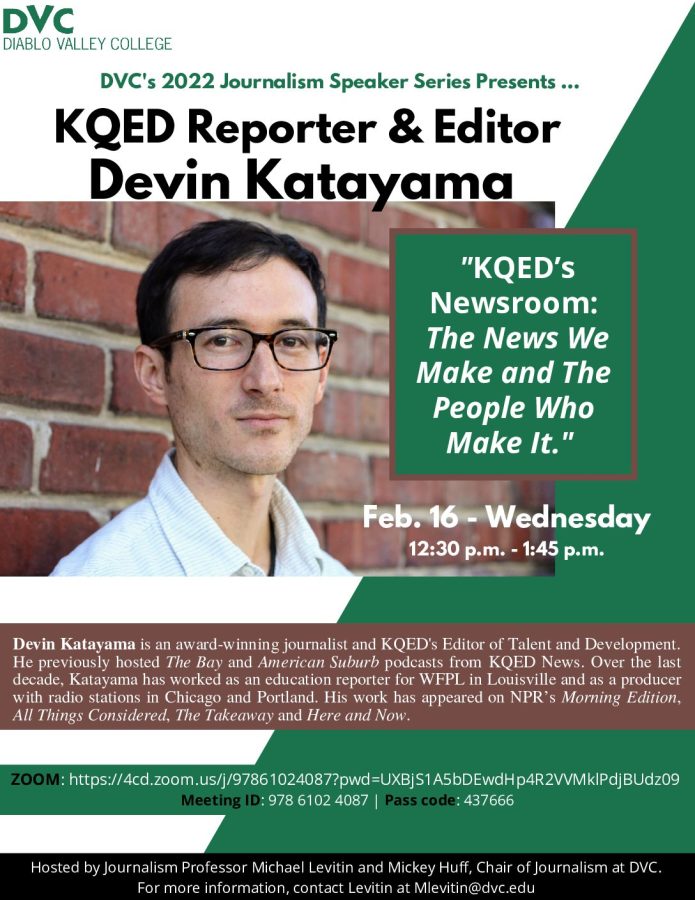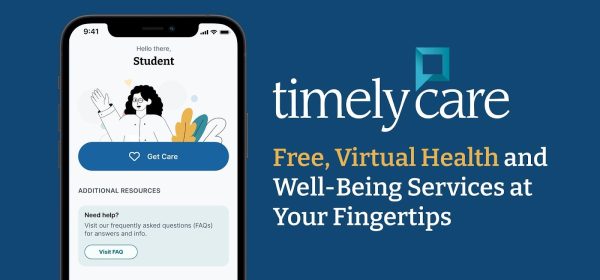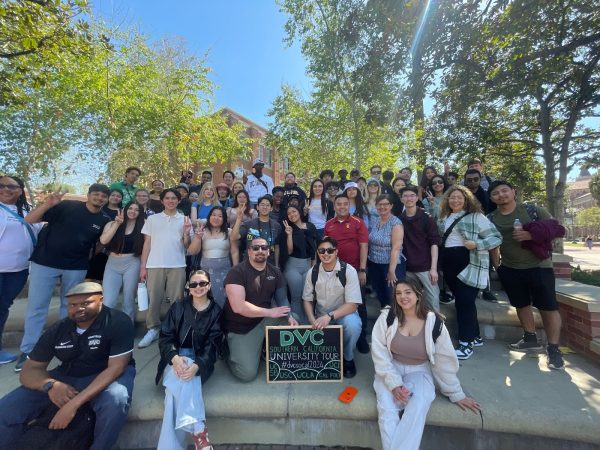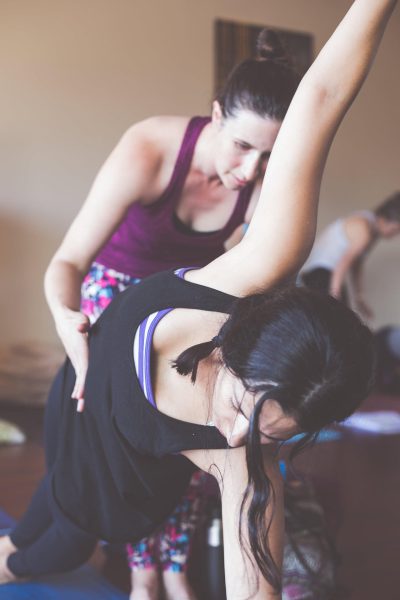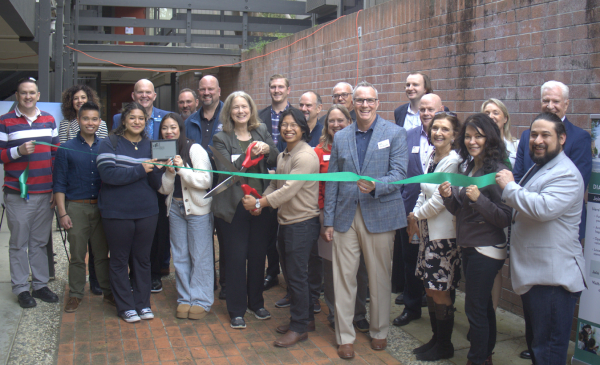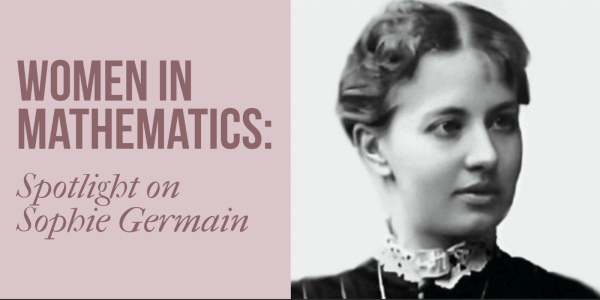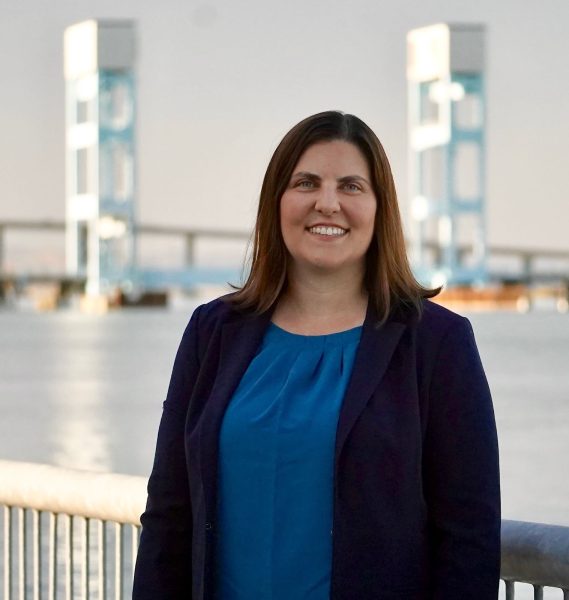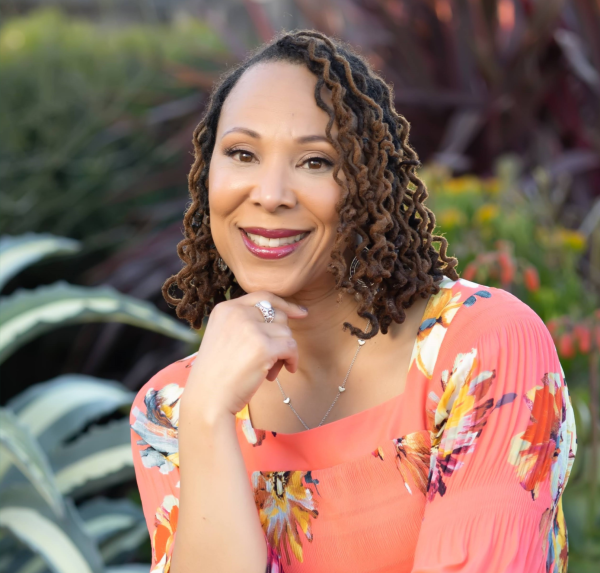Guest Speaker Devin Katayama of KQED Dives Into News Radio and “Passionate” Journalism
Diablo Valley College kicked off its 2022 Journalism Speaker Series on Feb. 16 with award-winning Bay Area reporter Devin Katayama, whose talk, “KQED’s Newsroom: The News We Make and The People Who Make It,” ranged from his beginnings in journalism to advice about how to choose and develop compelling radio stories.
“One way that I felt connected to the world was through news,” said Katayama, who serves as KQED’s editor of talent and development, helping direct its internship program and mentor up-and-coming journalists.
Katayama first got into public media and journalism at 27, and earned his master’s degree in journalism from Columbia College in Chicago, where he was a Follett Fellow. Because the journalism program mostly focused on print, he had to convince his professors to allow him to do stories in audio. He said he believed he got his first job because of the audio clips he had collected, although they weren’t of a professional quality.
“The audio was what I loved,” Katayama said about his discovery of news radio. His formation as a journalist happened as he experimented with audio reporting in Chicago, where he was “just trying to think about what audio stories [he] wanted to tell.”
Katayama ended up receiving the Studs Terkel Community Media Workshop Scholarship Award for his stories about street youth in Chicago. The award honors local media professionals who take risks by covering social issues with new and unusual perspectives.
During last month’s speaker series event, attendees were treated to some of the reporter’s broadcast clips, such as a non-narrated piece featuring a teenage mother in the public school system. Katayama explained that for these types of clips, he steps back from narrating and allows people to tell their story in full sentences.
A former host of two KQED podcasts, “The Bay” and “American Suburb” – both experiences that he said changed the way he approached journalism — Katayama has worked for WFPL radio in Louisville, Ky., and spent time as a producer at radio stations in Chicago and Portland, Ore.
He said smaller stations rather than big city markets often have more opportunities for younger reporters.
“If you are interested in audio [reporting] specifically, there are ways to do it cheap or free,” Katayama said, such as recording interviews on one’s smartphone and using free editing software.
Katayama’s experience ranges from reporting, anchoring, hosting live specials, moderating panels, and even producing an award-winning documentary, “At Risk,” about Chicago’s most vulnerable student population.
Katayama emphasized the importance of crafting a narrative and taking a step back to think about the context journalists can add to their coverage. “Who are the sources that you are reaching out to for your stories?” he asked, and “are those the people who really speak for your story?”
He advised young reporters to consider voices that aren’t usually being heard, and to seek out unexpected subjects. “Who else could we interview for this story, someone who has not had the microphone before?”
Most news coverage at KQED comes from the two big cities in the Bay Area, San Francisco and Oakland, he said. But often, the underreported stories from smaller places matter just as much – and that’s where beginning journalists can often get their foot in the door.
Katayama said he and his “American Suburb” team traveled to cities such as Antioch, at the end of the BART line in the East Bay, to speak with people who had been displaced due to gentrification. Racism, the struggle to belong, and a lack of help were some of the glaring issues those communities faced, he said, and they attracted little media attention.
KQED News, whose scope includes radio programming, audience and community engagement, and TV programming, has been moving more toward podcasting as an avenue for news, according to Katayama. He provided some useful tips for creating a “newsy” or narrative podcast: pick a story, pick a guest to pre-interview, then write questions and a narrative that provides a beginning, a middle, and an end to a story. It’s “kind of a skill,” said Katayama.
KQED is currently offering six-month newsroom internships for various programming including “The California Report Magazine,” where Katayama himself previously interned, as well as the “Rightnowish” and “Bay Curious” podcasts.
Journalists can become authorities on subjects or stories after following a beat for years, Katayama said. He also mentioned that a reporter can earn trust from sources by being transparent.
As far as finding a reporting beat as a journalist, Katayama cited his passion for education and his interest in becoming a teacher as the reasons that motivated his own beat during his time in Louisville. A general assignment reporter, he said, will naturally be drawn to certain types of themes and issues in the world.
“Stuff that you’re passionate about, run with it.”





































































